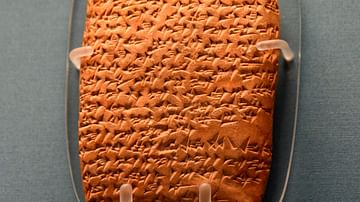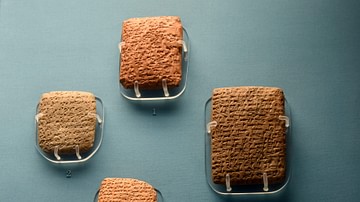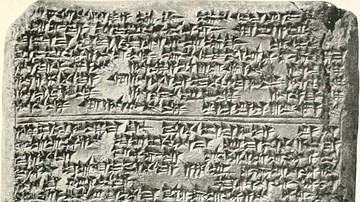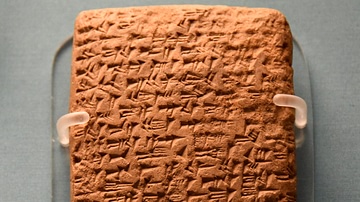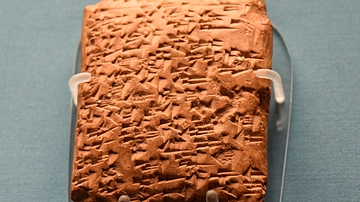Illustration
This clay tablet is part of the Amarna letters. This letter was sent from Labayu, ruler of Shechem to the Egyptian pharaoh Amenhotep III or Akhenaten. Labayu denies accusation of treachery and failure to comply with the pharaoh's orders. He justifies his capture of a certain town by quoting a proverb "When an ant is struck, does not fight back and bite the hand of the man that struck it?" It is significant that Labayu, the leader of the Hapiru, is seen as the ruler of Shechem, a city which lay in the heart of the hill country, and which must have served as the power base for the Hapiru. The letter was written in Babylonian cuneiform inscriptions; the writing is written between lines. 14th century BCE. From Tell el-Amarna, Egypt. (The British Museum, London).
About the Author
Cite This Work
APA Style
Amin, O. S. M. (2016, September 08). Amarna Letter from Labayu. World History Encyclopedia. Retrieved from https://www.worldhistory.org/image/5628/amarna-letter-from-labayu/
Chicago Style
Amin, Osama Shukir Muhammed. "Amarna Letter from Labayu." World History Encyclopedia. Last modified September 08, 2016. https://www.worldhistory.org/image/5628/amarna-letter-from-labayu/.
MLA Style
Amin, Osama Shukir Muhammed. "Amarna Letter from Labayu." World History Encyclopedia. World History Encyclopedia, 08 Sep 2016. Web. 30 Mar 2025.



